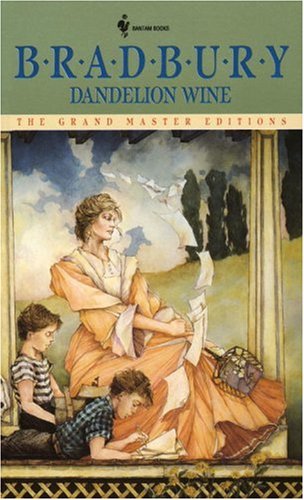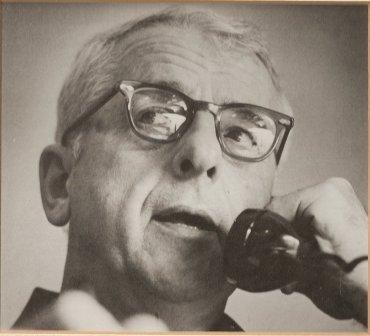 In 1977 and 1978, as a young adult now living on my own in my hometown of Ann Arbor (my mom and dad had remarried each other and she had moved down to Ohio to live with him), I was somehow able to live almost completely in the moment, aided by the transcending joy I found walking from place to place in town. After twenty plus years of navigating these streets on foot, by bicycle or by car, I knew them so well I could head out towards my destination of the moment, let my mind totally drift with any thought so at times I barely knew exactly where I was but still managed to get where I was going, experiencing the joys of all four full seasons and continuing my exploration of the magical side to life. Continue reading →
In 1977 and 1978, as a young adult now living on my own in my hometown of Ann Arbor (my mom and dad had remarried each other and she had moved down to Ohio to live with him), I was somehow able to live almost completely in the moment, aided by the transcending joy I found walking from place to place in town. After twenty plus years of navigating these streets on foot, by bicycle or by car, I knew them so well I could head out towards my destination of the moment, let my mind totally drift with any thought so at times I barely knew exactly where I was but still managed to get where I was going, experiencing the joys of all four full seasons and continuing my exploration of the magical side to life. Continue reading →
Dandelion Wine
 Reading Ray Bradbury’s book paved the way for my own encounter with, and embrace of, the magical side of life, while still not believing in god. I think I read the book over forty years ago in junior high English class, and I can hardly recall any of the details of the story, but no book I’ve read has had more impact on my life. It’s one of those cases where you encounter an idea that does not seem to impact you immediately, but seeds a thought in your mind that maybe comes to fruition at some later time, when that idea addresses a new need.
Reading Ray Bradbury’s book paved the way for my own encounter with, and embrace of, the magical side of life, while still not believing in god. I think I read the book over forty years ago in junior high English class, and I can hardly recall any of the details of the story, but no book I’ve read has had more impact on my life. It’s one of those cases where you encounter an idea that does not seem to impact you immediately, but seeds a thought in your mind that maybe comes to fruition at some later time, when that idea addresses a new need.
I think as a child I lived in a world of constant magic, creativity and imagination, so acknowledging a magical side of life was not an issue… there was just life and it was what it was… and for me that included being magical. Now looking back, I acknowledge the context of circumstances, the privilege of being a white male growing up in a progressive, middle-class community in America. I also acknowledge the proactive effort of my parents to raise me “outside the box” and dedicate time and money (given their modest means) to create an enriched environment for me to bloom within and explore life’s enchantment. Continue reading →
Chicken Pies & Banquet Bags
 In 1965, when I was ten and my brother seven, our mom and dad got divorced, our mom getting custody of my brother and I, and my dad allowed the standard visitations of the non-custodial parent. Our mom continued to make us meals (particularly lunch and dinner, we fixed our own cold cereal for breakfast) for a couple more years, but after that she went through a difficult period of depression and health issues and I recall, more and more, that I had to make my own meals.
In 1965, when I was ten and my brother seven, our mom and dad got divorced, our mom getting custody of my brother and I, and my dad allowed the standard visitations of the non-custodial parent. Our mom continued to make us meals (particularly lunch and dinner, we fixed our own cold cereal for breakfast) for a couple more years, but after that she went through a difficult period of depression and health issues and I recall, more and more, that I had to make my own meals.
Being 1965, this is way before the day of such specialty stores as “Trader Joe’s” that offer a wide variety of previously prepared and packaged meals for one or two. Basically we had whatever was available at a standard grocery store of the day, in our case either the locally owned “Food & Drug” or the bigger chain “A & P”. So during this very difficult period for her, when she spent much of the time in her bedroom, in her forays to the store she started bringing home a lot of these prepared foods, rather than the uncooked chicken, pork chops, or potatoes that used to be featured in her grocery list. Continue reading →
Weekends with Dad
 For the first three years after our mom and dad divorced our dad continued to live in Ann Arbor. Though he was no longer in the house he made the effort to be very much a part of our lives, taking us to the Food & Drug lunch counter for school day lunches and having us spend the classic divorce two weekends a month with him. He was not just going through the motions of the non-custodial parent, he really enjoyed having us with him and it gave him and he always thought up fun things for us to do together.
For the first three years after our mom and dad divorced our dad continued to live in Ann Arbor. Though he was no longer in the house he made the effort to be very much a part of our lives, taking us to the Food & Drug lunch counter for school day lunches and having us spend the classic divorce two weekends a month with him. He was not just going through the motions of the non-custodial parent, he really enjoyed having us with him and it gave him and he always thought up fun things for us to do together.
His first place was on Henry Street, just off State Street a mile south of the University of Michigan campus and a half mile east of the stadium. He lived with two UofM graduate students in a three bedroom apartment. Being near the stadium and basketball arena and the whole University athletic complex there were plenty of practice fields close by where we could play baseball, football or basketball together. Continue reading →
Sleeping Compartment
 As I have said elsewhere, my dad instilled in me that at its best, “life is an adventure”. No where is this paradigm more in play than when you are traveling, when you are likely to be…
As I have said elsewhere, my dad instilled in me that at its best, “life is an adventure”. No where is this paradigm more in play than when you are traveling, when you are likely to be…
1. Having to make decisions about what is most important to bring and not to bring
2. Seeing things you have not seen before
3. Sleeping in strange new places
4. Meeting new people
5. Making more decisions than you normally would
With the wrong mindset, travel can be cast as an arduous logistical chore, long dull hours strapped into a seat, or the discomfort of unfamiliar food, people or circumstances. But when travelling is cast in the light of adventure, I think it is a particularly great experience for kids. If life is a journey, then a trip to somewhere else is a microcosm of life’s journey, a metaphorical education on how to lead one’s life. Continue reading →
Have Bike Will Travel
 At about age eight, when I had pretty much mastered riding my bicycle, my mom and dad let me go out on my own on that bicycle, as long as I headed home when the street lights came on, which was either in the late afternoon or the early evening depending on what time of year it was. My parents judged the town to be pretty safe, and me to be a smart, verbal kid who knew his way around this larger neighborhood and was basically cautious enough to not do anything foolish.
At about age eight, when I had pretty much mastered riding my bicycle, my mom and dad let me go out on my own on that bicycle, as long as I headed home when the street lights came on, which was either in the late afternoon or the early evening depending on what time of year it was. My parents judged the town to be pretty safe, and me to be a smart, verbal kid who knew his way around this larger neighborhood and was basically cautious enough to not do anything foolish.
With downtown Ann Arbor a little more than a mile away, there were a lot of places within easy bicycle distance of my house. Bach school (my elementary school, pronounced ‘bah’), the public library and my favorite toy, hobby and dime stores and most of my friends were all within a couple miles of our house on Prescott Street. They all were no more than a ten to fifteen minute bike ride for a kid like me. The routes took me mainly down residential streets lined with big maple trees. Continue reading →
Play School

Towsley may well have been inspired by Maria Montessori, the famous Italian scientist, feminist and humanistic educator, who said that, “Education should no longer be mostly imparting of knowledge, but must take a new path, seeking the release of human potentialities.” Montessori demonstrated in her schools (and packaged in her “method” that is used today in thousands of schools around the world) that children learn best in an enriched child-centered environment where they can explore, touch and learn at their own direction. This should be an environment without tests or grades, which retard learning and self-esteem by introducing a negative and debilitating competition. Continue reading →
To our Son Eric’s Health
 Our son Eric turned 23 in January and is no longer covered under my partner Sally’s family health insurance, which continues to cover her, our 20-year-old daughter Emma and me. Eric is still wrapped up in that classic, compelling, entrepreneurial American struggle to make a small business successful, now 18 months into that effort with the outcome still in doubt due in large part to launching the business just half a year before our current severe recession took full hold. As is often the case when one launches a business, Eric is taking little or no money out of it to pay himself, and is therefore living on a shoestring, which now includes living without any sort of health care coverage. Continue reading →
Our son Eric turned 23 in January and is no longer covered under my partner Sally’s family health insurance, which continues to cover her, our 20-year-old daughter Emma and me. Eric is still wrapped up in that classic, compelling, entrepreneurial American struggle to make a small business successful, now 18 months into that effort with the outcome still in doubt due in large part to launching the business just half a year before our current severe recession took full hold. As is often the case when one launches a business, Eric is taking little or no money out of it to pay himself, and is therefore living on a shoestring, which now includes living without any sort of health care coverage. Continue reading →
Community Organizer
 In January of 1982, already under the wings of Toni and Judith, my new feminist mentors, employers, hosts and patrons (though they were women the word “matrons” just doesn’t have the appropriate connotations) I plunged willingly into a new deep end. Toni was in charge of setting up the Los Angeles office for the last-ditch ERA Countdown Campaign effort to attempt to get three more state legislatures to ratify this proposed U.S. constitutional amendment, the focus of the mainstream women’s movement of the time. She had put together a four-person staff (all women) for the office, but one of the people she had slotted had dropped out at the last minute. To fill the gap she decided to broaden her gender horizon and offered the job to me, as I had previously proved myself as a volunteer. Continue reading →
In January of 1982, already under the wings of Toni and Judith, my new feminist mentors, employers, hosts and patrons (though they were women the word “matrons” just doesn’t have the appropriate connotations) I plunged willingly into a new deep end. Toni was in charge of setting up the Los Angeles office for the last-ditch ERA Countdown Campaign effort to attempt to get three more state legislatures to ratify this proposed U.S. constitutional amendment, the focus of the mainstream women’s movement of the time. She had put together a four-person staff (all women) for the office, but one of the people she had slotted had dropped out at the last minute. To fill the gap she decided to broaden her gender horizon and offered the job to me, as I had previously proved myself as a volunteer. Continue reading →
Once More in the Company of Women

As an older youth and a young adult, some of my most productive developmental times came when I had a compelling mentor and also a good circle of peers connected with that mentor. I think it is an ideal state for learning, whether the context is in or outside of formal education. To have a mentor at any point is a blessing, but the affect is amplified by having that circle of peers, as it were in academic terms, the “lab” that goes with the “lecture”. The wisdom of sought out authority (the mentor) is best integrated by using it to develop the agency that one can find in a circle of peers. This I see as different than most conventional classroom situations where the teacher administers and the students conform, and do not have the opportunity to become a “circle”, that is a self-governing group exercising power-with (rather than power-over) and choosing to give authority to their common mentor. Continue reading →